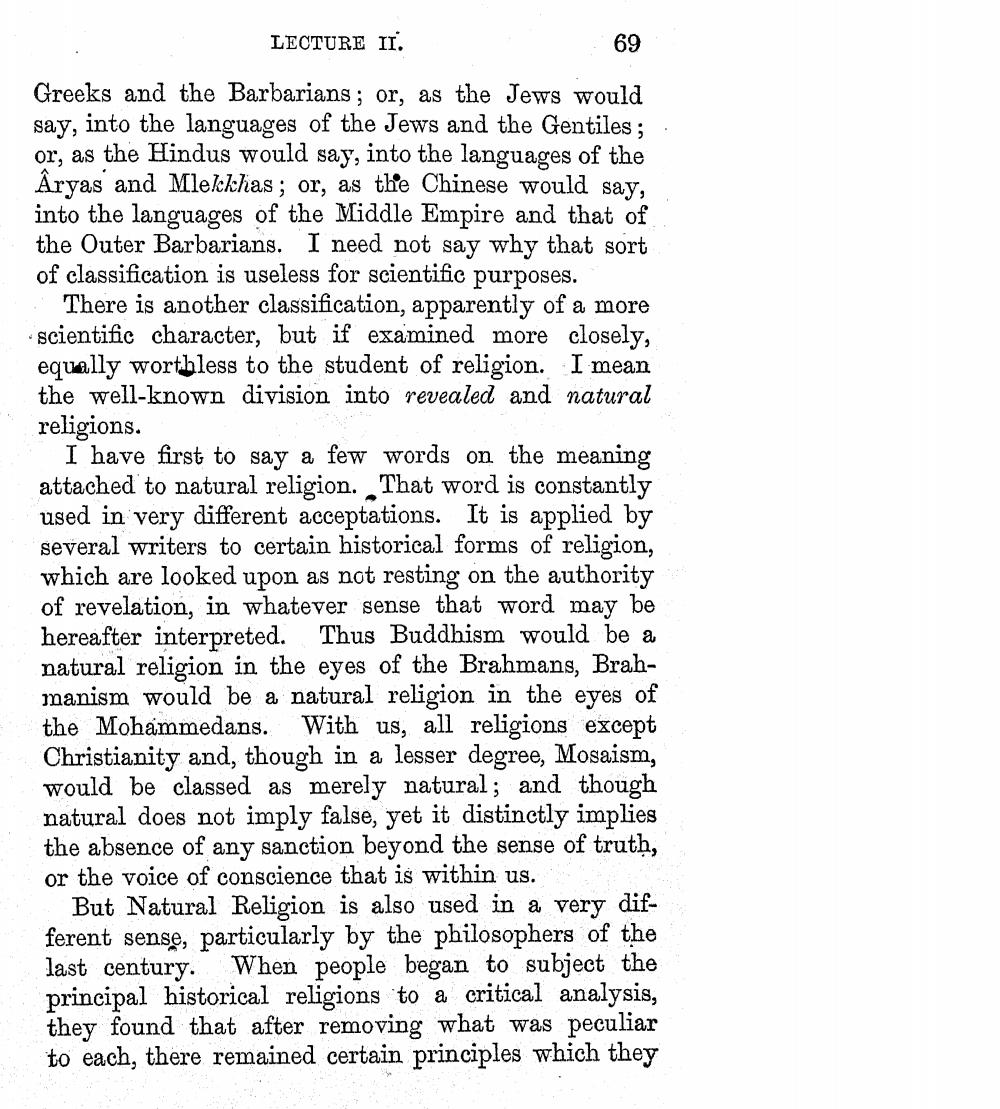________________
LECTURE II.
69
Greeks and the Barbarians; or, as the Jews would say, into the languages of the Jews and the Gentiles; or, as the Hindus would say, into the languages of the Âryas and Mlekkhas; or, as the Chinese would say, into the languages of the Middle Empire and that of the Outer Barbarians. I need not say why that sort of classification is useless for scientific purposes.
There is another classification, apparently of a more scientific character, but if examined more closely, equally worthless to the student of religion. I mean the well-known division into revealed and natural religions.
I have first to say a few words on the meaning attached to natural religion. That word is constantly used in very different acceptations. It is applied by several writers to certain historical forms of religion, which are looked upon as not resting on the authority of revelation, in whatever sense that word may be hereafter interpreted. Thus Buddhism would be a natural religion in the eyes of the Brahmans, Brahmanism would be a natural religion in the eyes of the Mohammedans. With us, all religions except Christianity and, though in a lesser degree, Mosaism, would be classed as merely natural; and though natural does not imply false, yet it distinctly implies the absence of any sanction beyond the sense of truth, or the voice of conscience that is within us.
But Natural Religion is also used in a very different sense, particularly by the philosophers of the last century. When people began to subject the principal historical religions to a critical analysis, they found that after removing what was peculiar to each, there remained certain principles which they




